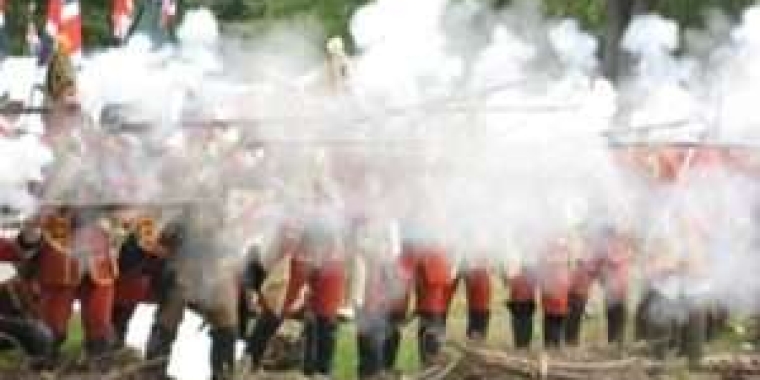
Living History Needs Living Support: Billy Jones Answered the Call

With gratitude and no small amount of regret, we mark the retirement of Assemblyman Billy Jones (D-Chateaugay Lake). A steadfast advocate for the North Country, Jones understood that preserving our past isn’t just about memory — it’s about momentum. His leadership was never more evident than when the very future of living history in New York hung in the balance.
In 2022, the Concealed Carry Improvement Act cast a wide net. Passed swiftly in the wake of the U.S. Supreme Court’s Bruen decision, it unintentionally restricted the use of antique firearms — flintlocks and muskets included — even when unloaded. Living historians were suddenly barred from parks, historic sites, schools, and battlefields. With the sweep of a pen, centuries of interpretive tradition were put at risk. The ripple effect reached every corner of the state: Old Fort Niagara, Plattsburgh, the Hudson Valley, Saratoga.
Living history is not a costume parade. It’s a civic act. When a child stands at Freeman’s Farm and hears the crack of a musket or the roll of a drum, they aren’t just learning — they’re feeling history. These experiences can’t be replicated in textbooks or classrooms. They are physical, sensory, and deeply human.
Jones recognized that. Representing a region steeped in military history, he immediately raised concerns. His response wasn’t partisan; it was practical. Some communities rely on living history events — not just to teach, but to thrive. Living history weekends bring hotel bookings, full restaurants, and vibrant main streets. Without them, heritage tourism falters.
He wasn’t alone for long. Assemblymember Carrie Woerner (D-Round Lake), whose district includes the sacred ground of the Battles of Saratoga, stepped in with precision and purpose. Partnering with Senator Shelley Mayer (D, WF-Yonkers), whose district includes historic White Plains, drafted legislation that clarified the law and restored common sense. In 2023, the state budget included language to resolve the issue. Public safety was preserved — but so was the public’s access to a vital educational tradition.
Organizations like Saratoga 250, the Brigade of the American Revolution, and Old Fort Niagara worked tirelessly to support the fix. These groups reminded Albany what we in the heritage tourism world know well: living history isn’t playacting. It’s interpretation. It’s mentorship. It’s community.
When reenactments disappear, so too do the sparks that ignite historical imagination. These events invite people to walk the same fields as their ancestors. They offer a chance to touch, see, and hear the past with all five senses. And they remind us that our democracy was not inevitable — it was forged in struggle, sacrifice, and collaboration.
As we approach America’s 250th anniversary, New York must recommit to supporting living history — not just in rhetoric, but in real policy. The next generation deserves more than monuments. They deserve moments — authentic, emotional, and alive.
Assemblyman Jones may be leaving office, but his legacy will echo with each volley, each interpretive march, each child who leans forward with wide eyes and asks, “Did that really happen here?” Because yes — it did. And thanks to Jones, Woerner, Mayer, and countless living historians across the state, it still does.


